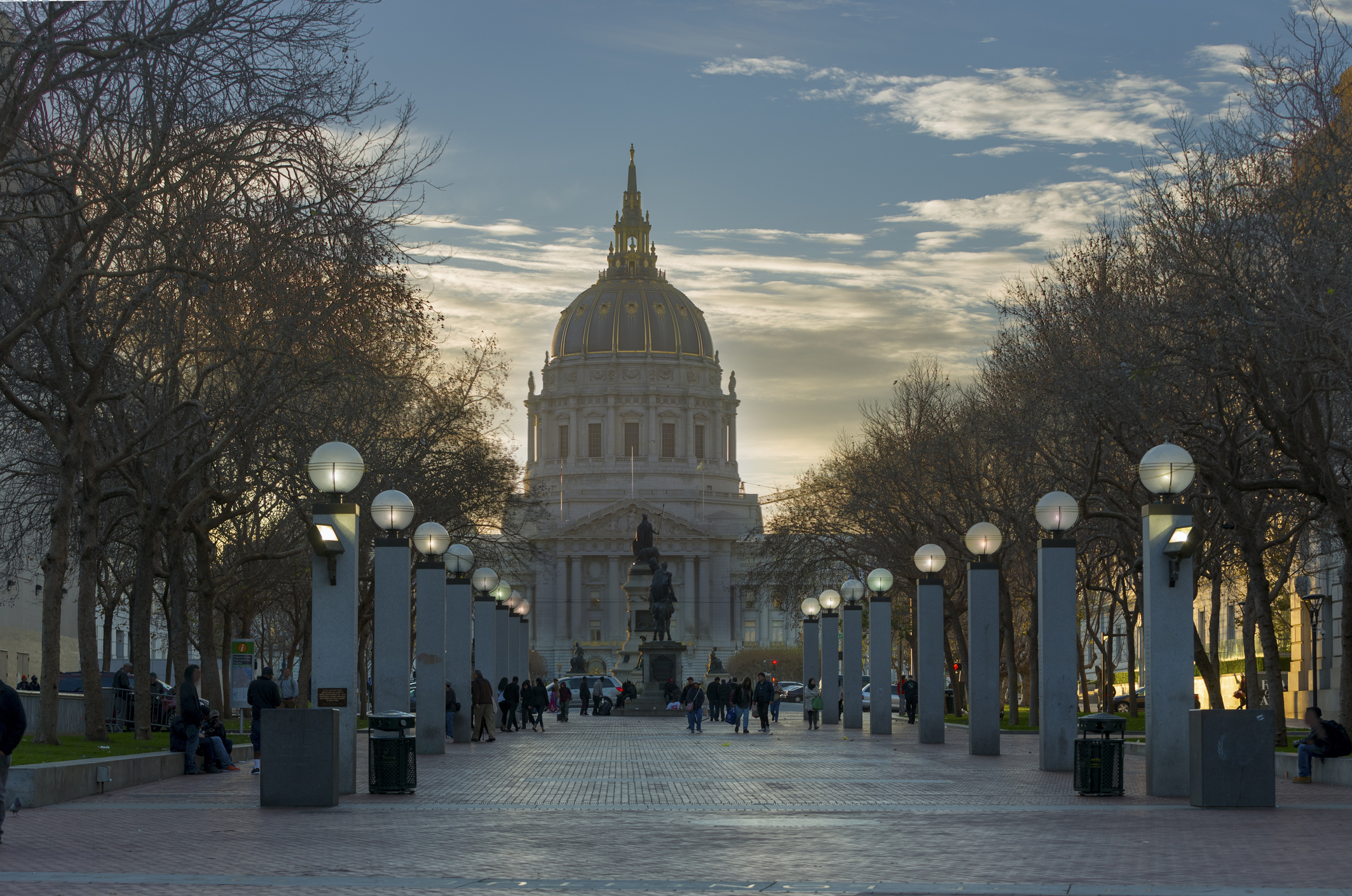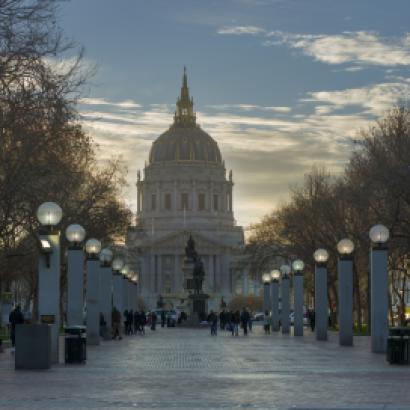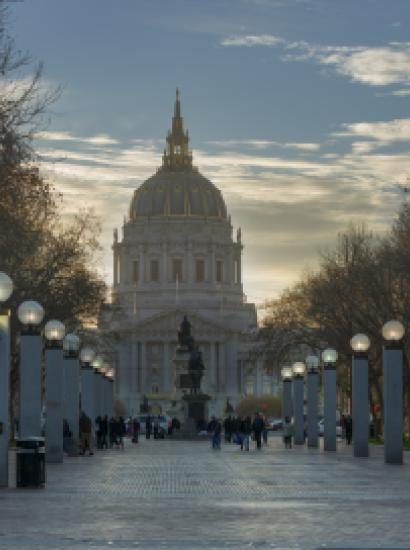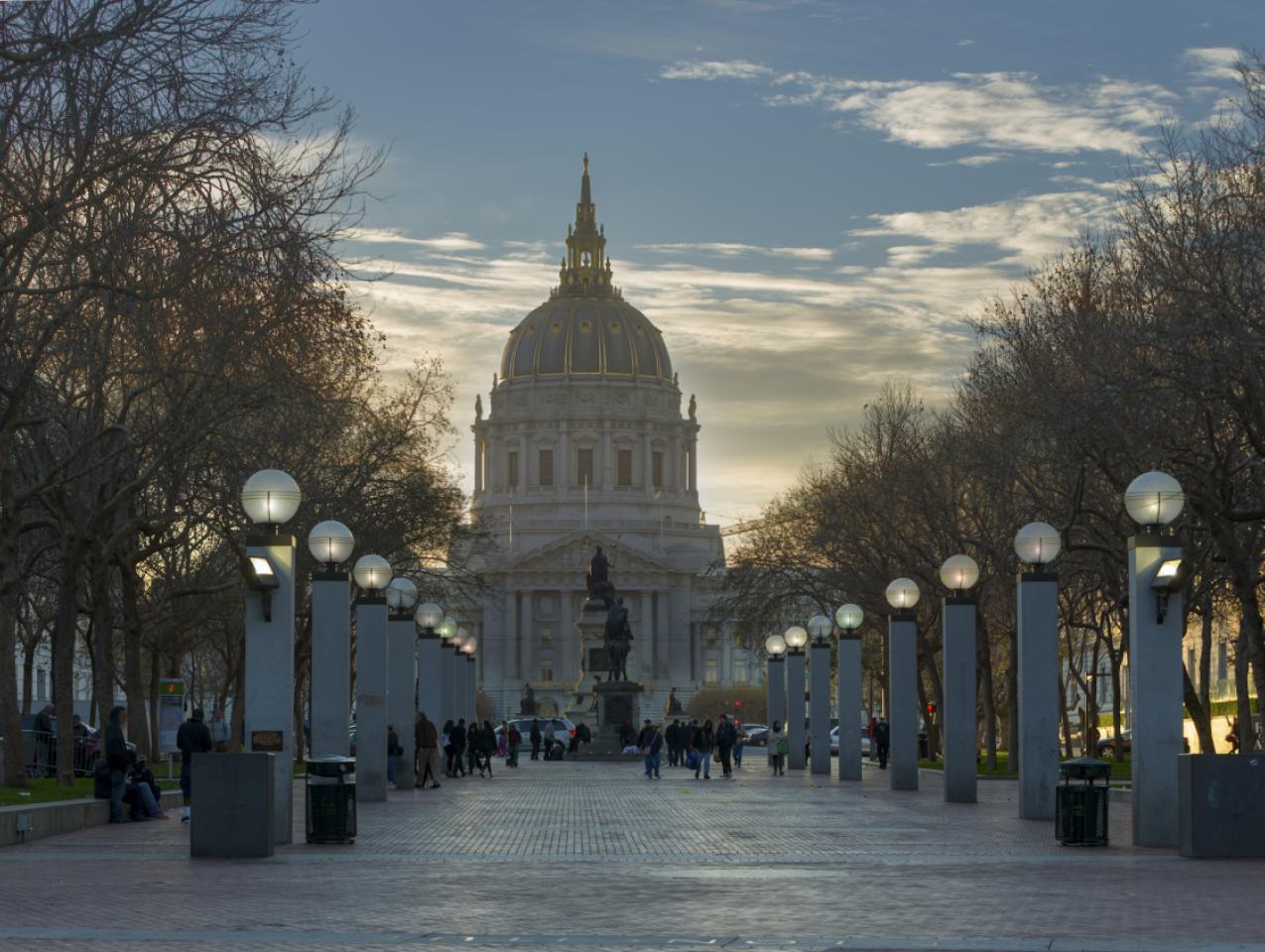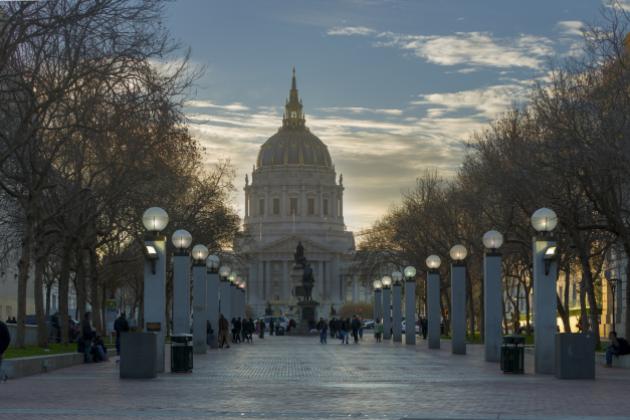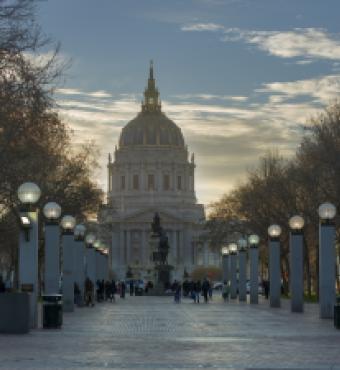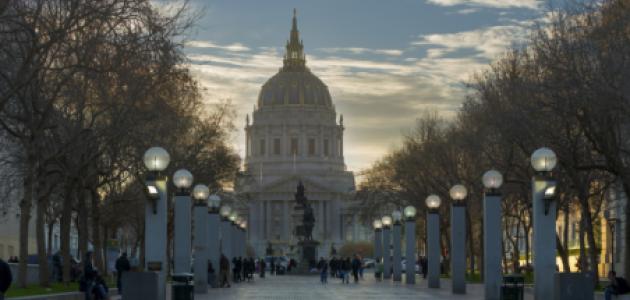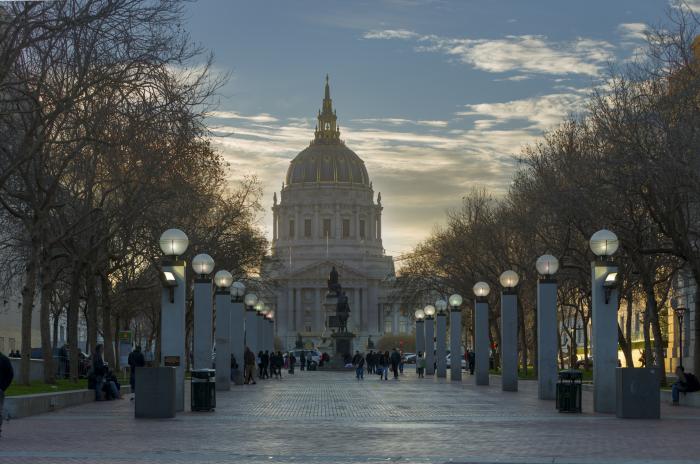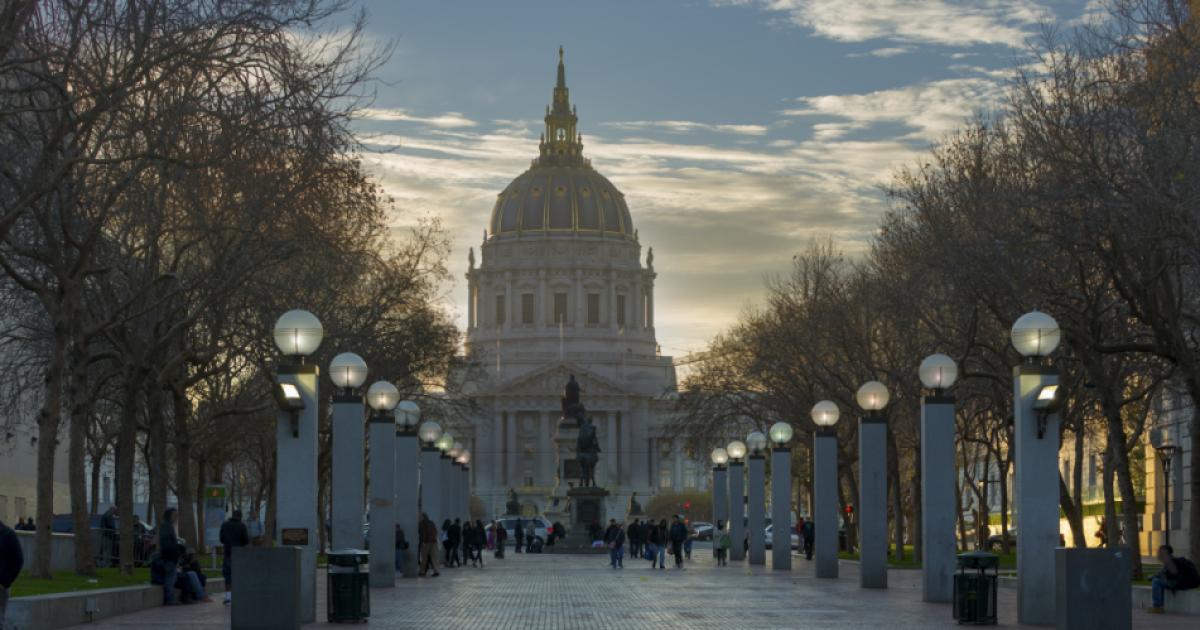- State & Local
- California
By conventional California political metrics, Florida governor Ron DeSantis’s recent visit to the Golden State was business as usual—that is, the business of seeking the Republican Party’s presidential nomination.
In a state that’s the antithesis of a competitive November “battleground” (not since 1988 have California voters opted for the GOP nominee—even then, it was a by margin of less than 4 percentage points), DeSantis’s visit was mostly about money, his multiple stops across Northern California reinforcing the sobriquet “the ATM of presidential politics.”
That said, there were at least two departures from the campaign norm.
First, DeSantis didn’t bother with media events—no one-on-one interviews with local print or electronic outlets, no newspaper editorial board sessions. And that’s unusual in that California and its early March 2024 primary might play a role in the coronation process.
Second, DeSantis decided to use what spare time he had during his California swing to film this sixty-second ad featuring the candidate standing in San Francisco’s crime- and drug-plagued Tenderloin district, bemoaning the city’s decline. Among DeSantis’s observations: “people defecating in the streets” . . . “businesses boarded up” . . . “they don’t prosecute criminals like they do in most parts of the country.”
The reaction to DeSantis’s broadside?
Local media subtly questioned its authenticity (one San Francisco television anchor saying Florida’s governor was “seemingly” on a city sidewalk, when in fact he was).
But perhaps more telling: no one in a position of authority in San Francisco questioned the content of DeSantis’s message (here’s the city’s mayor, London Breed, calling the ad “the oldest playbook in politics to get attention, talking bad about what’s wrong and not necessarily talking about solutions to fix it”).
Then again, why bother to argue such claims when the news seems to favor DeSantis? Had Florida’s governor waited a few more days before uttering the words “they don’t prosecute criminals . . .” he might have added this nugget: San Francisco’s district attorney deciding not to prosecute a man arrested for a rolling shootout along the city’s Embarcadero because, in effect, the case would take up too much time and resources.
There are three ways to look at DeSantis’s decision to score political points off San Francisco’s decline and decay.
First, for a candidate looking to connect with conservative Republican primary voters in the likes of Iowa who care not for rundown metropolises (Des Moines’s population is about one-fourth that of San Francisco’s) taking potshots at San Francisco is tantamount to shooting fish in a barrel.
Second, the ad continues an odd pattern in Republican presidential politics—San Francisco playing a supporting role in election years that end in a “4.”
In 1964, it was the Republican National Convention at the Cow Palace—technically, in adjacent Daly City and San Mateo County, but close enough to the bigger city to be considered a “San Francisco event.”
While San Francisco was not offered up as a slab of conservative red meat (it was a different city in the early 1960s, including a two-term GOP mayor who led the revitalization of San Francisco’s now-moribund financial district), it did serve as the host for both a raucous scene inside the Cow Palace and the late Barry Goldwater delivering an acceptance speech best remembered for this passage: “I would remind you that extremism in the defense of liberty is no vice. And let me remind you also that moderation in the pursuit of justice is no virtue.”
Fast-forward to 1984 and another national convention in San Francisco—this time, the Democrats’ turn—and Republicans using the city in more defamatory terms.
Prior to that year’s convention in San Francisco, conservative activists Jerry Falwell and Phyllis Schlafly staged a Moral Majority “Family Forum.” (“The Democrats,” Falwell claimed, “have capitulated to the feminists and abortion activists, they’ve abandoned the traditional family values.”)
But the bigger hit came one month later and 1,700 miles to the east: Dallas, Texas, and that year’s Republican National Convention, during which the late Jeane Kirkpatrick denounced “San Francisco Democrats” not so much for their values as for their world view. (“When the Soviet Union walked out of arms control negotiations, and refused even to discuss the issues,” Kirkpatrick orated, “the San Francisco Democrats didn't blame Soviet intransigence. They blamed the United States.”)
While Kirkpatrick’s remarks didn’t quite tip the electoral scales in 1984—Ronald Reagan won nearly 59 percent of the popular vote and forty-nine of fifty states—it didn’t go unnoticed by at least one convention delegate. Twenty-two years later, in 2006, and amidst what would turn out be a disastrous midterm election for Republicans, Newt Gingrich and other GOP leaders tried to stem the pending Democratic “blue wave” by questioning future House Speaker Nancy Pelosi’s “San Francisco values.”
And that takes us to 2023—the precursor to next year’s voting—and the question of whether DeSantis’s use of San Francisco as a backdrop for progressivism gone wrong (not a question of “values” as it is policies) will be a recurring theme with the Republican field.
The final words in the aforementioned DeSantis ad—“we gotta stop this madness; we need to restore sanity to this country”—offer a clue. Florida’s governor could easily use San Francisco and California’s example as a tale of progressivism gone wrong, with plenty of images (homeless populations, empty office space) to back the claims.
And how would that benefit DeSantis? For openers, it might bait California governor Gavin Newsom—not an active presidential contender but something of a “shadow candidate” as he continues to raise his national profile—into a more prominent role as his party’s conscience.
And who probably doesn’t want that? I’m guessing President Biden. For two reasons.
First, the more Democrats see of the telegenic, mentally agile Newsom (for example, his strong performance while debating Fox News’s Sean Hannity earlier this month) is a reminder that Biden isn’t as energetic or conversant.
Second, a Biden campaign which understands that the path to reelection runs through a handful of states that don’t always share California’s progressive sensibilities (this would be Arizona, Georgia, Pennsylvania, and Wisconsin) does not want to make next fall’s contest to turn into a de facto referendum on the Golden State’s policy direction.
Rest assured that Ron DeSantis will return to California at some point in the near future, the Golden State’s primary being eight months and a day after America celebrates its 247th birthday next week. He may even head to places other than Silicon Valley, Sacramento, and San Francisco—all stops on his last visit.
The question, come the time he’s back in California: Where DeSantis goes, will there be a camera to capture the seamier aspects of life in the Golden State?
Exploitative? Maybe.
Politically effective?
That remains to be seen.







